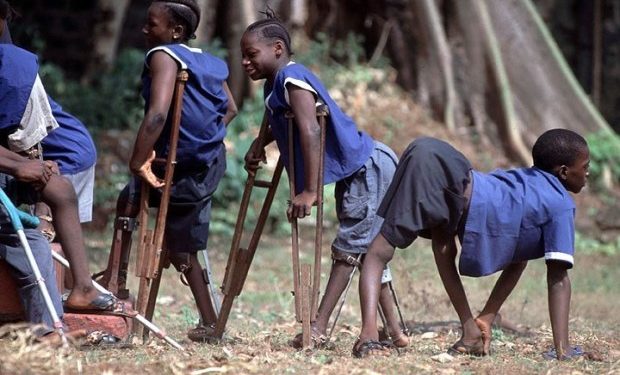
World Health Organization says Africa is free of wild polio
The World Health Organization is set to declare several African nations free of wild polio, making the continent free of the paralyzing pathogen for the first time in the region’s history.

“Good News! South Sudan’s complete documentation for wild polio virus-free status has been accepted,” the South Sudan branch of the WHO tweeted Thursday. “With this feat, WHO’s Africa Region is set to be declared wild polio virus-free 2020. Time for celebration and actions to maintain this achievement.”
Nigeria, too, sent out news of its own “milestone moment & awesome news,” having been granted “polio-free status, for the first time in our history,” as a spokesperson for Nigerian President Muhammadu Buhari tweeted.
The Africa Regional Certification Commission for polio eradication accepted the countries’ documentation on polio eradication efforts, with an official announcement to come next month at a planned Health Ministers’ meeting, Nigeria said.
“Amazing moment in history to have had our polio-eradication documentation accepted by the African Regional Certification Committee (ARCC),” tweeted Dr. Faisal Shuaib, executive director and CEO of the National Primary Health Care Development Agency, one of the lead organizations in the effort. “The Nigeria team led by NPHCDA and partners demonstrated evidence of our polio-free status.”
The effort has been decades in the works, Shuaib said.
Highly infectious polio affects mostly children under age 5, invading the nervous system and potentially causing “total paralysis in a matter of hours,” the WHO said. Between 5% and 10% of those who suffer paralysis die when their breathing muscles become paralyzed.
Once declared wild polio-free, countries must prove annually that they have remained so, Vanguard Newspapers of Nigeria said.
As of March, the Africa Regional Certification Commission had carried out field visits in all 47 countries of WHO’s African Region to “verify the absence of wild poliovirus while ensuring that disease surveillance is undergoing according to certification-standard,” WHO Africa said in a statement at the time.
The WHO had already accepted the documentation of 43 African countries, leaving Cameroon, Central African Republic, Nigeria and South Sudan remaining.
The last wild poliovirus detection anywhere in Africa was in 2016, “in stark contrast to 1996, when wild poliovirus paralyzed more than 75,000 children across every country on the continent,” WHO Africa said. To prove wild polio virus eradication, a region must register no new infections for three years running, demonstrated by intense disease surveillance.
“In addition, countries must maintain high immunization coverage for the oral polio vaccine, have a robust national polio outbreak preparedness and response plan and a functional National Polio Certification Committee,” the statement said.






